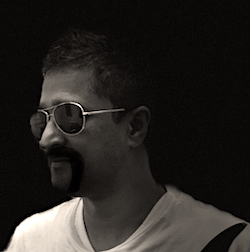The Spartacus Rebellion - A note on the trilogy.
It’s been months in the making, but I’m thrilled to announce the completion of the Spartacus trilogy.
Readers might wonder—why Spartacus? Much has been written about him. There is a famous movie, and there is a well-received TV series. The great thing about writing in the ancient period is that there is always an opportunity to look at the subject differently and provide a new treatment. The existing works are wonderful in their own way, and my books offer another perspective on the subject.
While the books follow the similar style of my trilogy on Cleopatra with a fast pace and twists-and-turns, it’s almost a diametrically opposite world. The Cleopatra books were about a Queen and Empress—the scope vast, the ambitions spanned nations, the people famous, and the politics and palace intrigue persistent.
On the other hand, the Spartacus books are focused on the forgotten men and women, the slaves, workers, and soldiers. These were people who served the great generals, kings, and queens. Their lives were often harsh and grim. The regimes were ruthless and unforgiving. And when they died, no songs were written lauding them, no plays in their honor, no plaques bearing their name, and no temples in their worship.
The trilogy does not dwell much on the Roman aristocracy’s drama, debauchery, politics, and intrigues. Instead, the novels stay closer to the lives of those who fought for and suffered under their rulers. I have also strived to stay close to the known milestones from history and tried to bring “realism” to the sequences.
While I take a dramatic license, I have strived to depict the life of the times and avoid anachronisms in the name of drama. For example, the grand and glorious “Gladiator” (the movie) style combats came nearly a century after Spartacus. It was much more likely that the games were still evolving and sponsored locally during his time. Since it was an expensive business, lives were not typically casually butchered (it changed under the emperors who came later). Even the big sponsors of the games with their training schools (Caesar was an owner of a large school!) came decades after Spartacus’ time. And the fancy fighting arenas and amphitheaters? Most that survive were built well after Spartacus. Marcus Crassus was immensely rich, but he was also a severe and austere man.
For all of their feats, only six names from the rebels’ side survive from antiquity and practically nothing about them as people! But we can infer Spartacus based on the impact of his decisions, the damage he inflicted, the times he lived in, and who he was in terms of his ethnic and cultural origin. What he did was astonishing, and I hope that when you journey along with him in the novels, you get a sense of the world he lived in and why he did what he did.
Through the novels, I have tried to tackle questions such as—how was he able to build such an army? What was it like living as a soldier, slave, and a gladiator? How could he beat the Roman legions repeatedly? What was his relation with other slave leaders who belonged to different tribes, spoke different languages, and had different cultural ethos? Of course, all this is woven into a fast-paced story that I hope will keep you immersed.
Thank you for reading this note. Now come with me on a walk with Spartacus.

Jay Penner's highly-rated books regularly feature Amazon's category bestseller lists. Try his Spartacus, Cleopatra, Whispers of Atlantis or Dark Shadows books. Reach out to him or subscribe to his popular newsletter.
learn more →